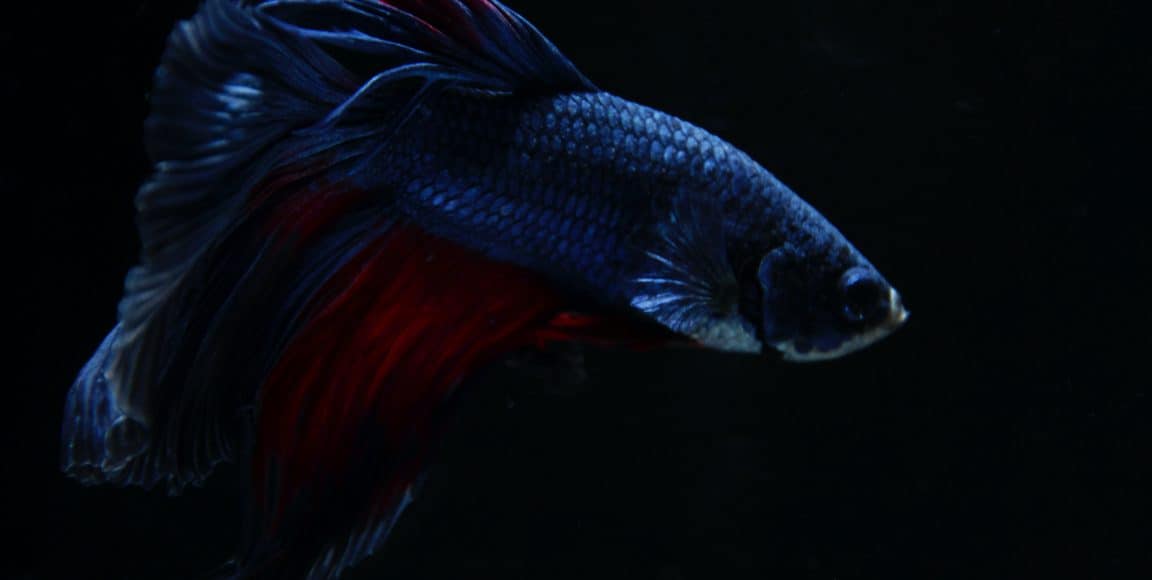Last Updated on August 6, 2020
There has been much debate whether fish experience feelings the same ways humans do. Fish’s brains aren’t as complex as mammalian brain structures but recent studies have shown that fish can feel pain, react to stimuli from their environment, and even have feelings.
But do fish get sad when other fish die?
Related: Fish You Can Put with a Betta
Associate Professor Culum Brown from Macquarie University concluded in Springer’s journal Animal Cognition that not only fish feel pain and are aware of it, but they can also multi-task, and exhibit a cultural behaviour (Source). Schooling fish are very aware that they need to stick to the group to avoid predators targeting them. They keep track of one another and learn to be part of the group. His research showed that fish are far more smart and have quite a good memory than previously believed.
Another study by Portuguese scientists supports the occurrence of emotion-like states in fish regulated by the fish’s perception of what is happening. M. Cerqueira et al. Cognitive appraisal of environmental stimuli induces emotion-like states in fish, Scientific Reports (2017) (Source).
Table of Contents
How do I know if my fish are happy?
They breed most of the fish in the aquarium trade in captivity but breeders ensure that they kept the fish in water conditions similar to that of the fish’s origin. It is good to research to know the natural habitat your fish came from and try to mimic that as much as possible. Avoid having ammonia spikes lethal to your fish. Poor water conditions will kill fish. Keep water parameters consistent as that of their natural environment. This will ensure that your fish will grow and live healthy and happy.
Note the climate the fish came from. Betta fish come from the southeast Asian region where the climate is of the tropical range. Give your betta fish the optimal temperature range by using an aquarium heater. The optimal temperature range for a Betta fish tank would be 76 to 81 degrees Fahrenheit or 24 to 27 degrees Celsius.
Betta fish are highly territorial towards their own species but they may put up with tank mates which pose no threat to them. This will give your betta fish daily stimulation and they can even be part of a community tank. Your betta fish can live alone but will enjoy having tank mates. Losing its tank mates will not kill a betta fish. If a fish likes being in a shoal or school such as neon tetras then losing its companions will surely impact the fish. This may lead to stress, lead to lethargy and lack of appetite, and even death.
Appetite is very important to note. Fish that eat voraciously are happy and healthy fish. If your fish is not eating, then there may be something wrong. Try to introduce another brand of fish food or try to incorporate live food such as baby brine shrimp or daphnia. If this does not seem to work, then your fish may suffer from a disease. If you cannot detect diseases early on this can lead to more problems such as infecting other tank mates and losing all your inhabitants.
Related: Can Male Betta Fish Live with Other Fish?

What causes fish to die suddenly?
Ammonia Poisoning
Ammonia is lethal to fish and is not visible in the tank. You need a test kit to check for this parameter. A sudden spike in ammonia happens when the bacteria in a fish tank cannot decompose ammonia in the time before it reaches critical levels that can kill fish. This is the reason you need to cycle a fish tank before adding fish. It usually takes time to set up the nitrogen cycle but here are products available that speed up this process.
Stress
Fish are easily stressed because of incompatible tank mates, poor water condition, improper diet, and sudden fluctuations in temperature. Prevent sudden fish death by making sure you keep the factors we mentioned above in check.
Low Oxygen
Fish need oxygen to survive, and the lack of it will kill fish. Make sure to constantly oxigenate the water by using devices such as bubble makers, air driven sponge filters, and external filter outflows that disturb the water surface. This constant agitation of the water’s surface will ensure gas exchange to occur between the air and water in your fish tank.
Betta fish have evolved and have a labyrinth organ which allows them to extract oxygen directly by gulping air from the water surface. Let your betta fish ease of access to the surface by not putting too much floating plants and decoration.
Disease
Most fish diseases have symptoms which you can detect in an early stage. Ich which is very common will present itself early on as several white spots on your fish’s body. This may spread and infect other tank inhabitants if their immune systems can no longer fight the parasite that causes it.
Always have a separate tank ready to serve as a quarantine tank where you will medicate one or two affected fish. There may come a time though that you will need to medicate the whole community tank if the infection spreads to most inhabitants.
Improper diet may trigger swelling and bloating in your fish which may be a sign of indigestion. Always research the preferred diet of your fish. An example of this would be the betta which is a carnivorous fish so feeding it a varied diet of live food will enhance its health and prevent indigestion. Long-term indigestion may lead to dropsy which is very difficult to cure since the fish’s organs can be affected and produce swelling.
Do fish get bored living in a tank?
Betta fish will not get too affected when it loses a tank mate. Being a highly territorial fish, being in solitude is something it’s used to. As long as it gets its food and has a properly maintained home then it will still thrive.
A fish that likes being in a group such an ember tetra will notice the loss of its companions and may suddenly change its behavior. It may no longer swim around the tank as much and will always hide instead. It may also lose its appetite and slowly pass away.
